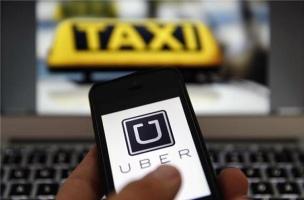 On Tuesday, pooling was the only option that worked across these app-based platforms.
On Tuesday, pooling was the only option that worked across these app-based platforms.
‘Fastest finger first’ is a line popularised by the game show Who Wants To Be A Millionaire? and its Hindi version Kaun Banega Crorepati.
On Tuesday, commuters in Delhi had to do something similar while booking cabs as app-based service providers such as Uber and Ola were out of reach.
The wait for a taxi stretched up to 40 minutes, if at all they were available.
According to company executives, the situation might worsen in the coming days.
On Tuesday, pooling was the only option that worked across these app-based platforms.
The Delhi government had asked cab operators to do away with surge pricing when the odd-even traffic plan -- which seeks to reduce pollution and traffic congestion on Delhi roads -- is in force.
Under this plan, petrol- and diesel-run cars with number plates ending in odd numbers won’t be allowed ply only on even-number dates, while those with even numbers can’t be on the roads on odd-number dates.
Surge pricing is a technique used by taxi aggregators to keep more cabs on the road during peak hours.
It kicks in when demand for cabs peaks.
Uber, which has been vocal about its displeasure with the Delhi government’s stand on surge pricing, sent out messages to its users explaining why it would not be able to provide consistent services under the vehicle-rationing rule.
“Dear Rider, if you’re seeing no cars available or longer wait time, that’s because of the suspension of surge.
"Surge ensures there’s a car available at all times.
"While we’re working hard on getting more cars out on the road, please switch to uberPOOL and help us utilise the existing cars better. Bear with us,” its message read.
After Delhi Chief Minister Kejriwal’s warning to Ola and Uber against surge-pricing, many cabs belonging to the two taxi aggregators were impounded for “overcharging”.
Cabs were impounded on Tuesday, too, in cases where drivers allegedly overcharged.
“Dynamic price or surge price provides a choice for drivers to make more earnings and it incentivises them to take trips in areas where the demand is high. For drivers, dynamic pricing provides more information about the minute-to-minute conditions in their city.
They can choose to act on this information by heading to areas with active surge multipliers to seek higher fares,” said a company representative.
“When drivers open their app during a surge, they see a heat map. Red zones are already surging and the driver can see the multiplier.
"Yellow zones are busy and might surge soon.
"Drivers can zoom out on the map to see whole cities and head to areas with even higher multipliers if they wish.
"And if drivers accept a fare in a surge area, they’ll also see the same lightning,” the executive explained the process of surge.
The ‘surge’ kicks in when there is an increase in demand at any given time.
It can range from zero, which is no surge, to as much as four times that of the fare during peak hours.
In the past few weeks, Uber has faced flak from the Karnataka government as well.
The state’s transport department had seized about 20 vehicles affiliated to both services for allegedly charging consumers more than the maximum Rs 19.5 a km mandated by the state government.
Sources said cab aggregators are trying to have a dialogue with the Karnataka government over the issue.
“In Karnataka, the government has not stopped them from surging but they have put a cap on it. What is happening now is that the cab services are showing a surge of Rs 19.50 always instead of times when it might have shown less surge.
It is not helping the users in Karnataka. Rather, it is adding to the problem,” said a source close to the company.
Ola, on the other hand, is trying to promote its other services to deal with the situation. “With the onset of the odd-even, we have seen increased demand for mobility solutions on the Ola app. There are tens of thousands of vehicles that are available on the Ola App across cabs, auto-rickshaws, Ola Share and Ola Shuttle in Delhi national capital region.
In support of the vehicle-rationing scheme by the Delhi government, we have temporarily pulled out ‘Peak Pricing’ in the region.
“We are also urging citizens to choose shared mobility solutions like Ola Share and Ola Shuttle,” the company stated.











